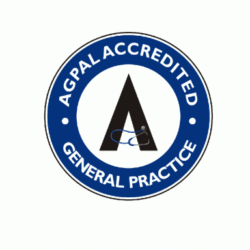
Listeriosis is a type of food poisoning caused by consumption of food that has been contaminated by Listeria bacteria. It is thought to cause around 150 hospitalisations and 15 deaths in Australia every year.
In recent weeks, an outbreak of Listeriosis linked to rockmelons grown in the Riverina area of New South Wales has resulted in two deaths in Victoria and two deaths in New South Wales, plus around 18 hospitalisations in the Eastern states. The contaminated melons were withdrawn from shops and news outlets were prompt to warn people not to eat product they may have at home.
Listeria is widespread in the natural environment and can be found in soil, irrigation water, dirty water and fertilisers.
It generally doesn’t cause any harm if ingested by a healthy person. Certain groups of people are at greater risk of developing listeriosis including:
- Those aged 70 or older
- Pregnant women
- Infants & toddlers
- Those with weakened or compromised immune systems
Listeriosis infection may present in a healthy individual as a mild ‘flu’ or mild gastroenteritis-type illness. It can take up to a month after ingestion of the contaminated food for symptoms to present. Many people will dismiss the symptoms and recover without much thought.
In more severe cases, when Listeriosis affects people with a weakened immune system the symptoms can be much more severe and even fatal.
Common symptoms include fever, headaches, body aches & pains and fatigue. Less common symptoms include abdominal pain, diarrhoea, cramping and nausea.
Because these symptoms are quite non-specific, people often do not seek medical attention. It is important that pregnant women especially, who experience these symptoms seek medical attention quickly as listeriosis can be passed on to the developing baby and lead to miscarriage, premature birth or even stillbirth. Symptoms of severe infection can include a stiff neck, loss of balance, confusion, fainting, convulsions and coma.
Foods considered to have a higher risk of listeria contamination include:
- Cold, processed meats (such as deli meats & pre-packaged sliced meat) and cold cooked chicken
- Unpasteurised dairy products
- Soft cheeses
- Chilled, ready to eat seafood such as prawns, oysters, sushi, sashimi and smoked fish
- Pate and meat spreads
- Soft serve ice cream
- Unwashed raw fruits and vegetables, pre-prepared salads (especially those in a buffet or salad bar)
Those considered at high-risk of listeriosis should avoid these foods and stick to freshly cooked or freshly prepared foods. Rockmelons available now in stores have been declared safe by the NSW Food Authority so it would seem the threat from this particular source has passed.
Listeriosis can be treated with antibiotics once infection has been confirmed by your Doctor via blood or other tests.




